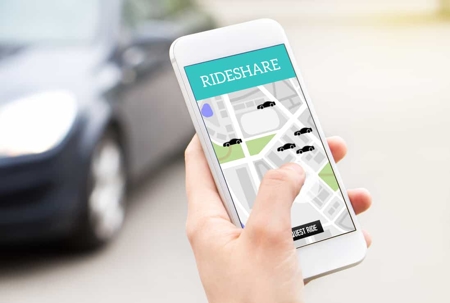If you're a rideshare driver or passenger, it's important to know about the auto insurance policies that may provide coverage to you in an accident. Many drivers are unaware of the fact that an individual’s personal auto insurance policy may not cover them when they're driving for a rideshare company like Uber or Lyft. In this blog post, we will discuss the different types of coverage that are available to rideshare drivers that would provide coverage for them and their passengers, and what you need to do to make sure you're fully protected.
Rideshare Auto Insurance Requirements
Typically, a rideshare driver’s personal auto insurance policy provides coverage to a driver when the driver is not using the app and is not actively engaged in a rideshare ride. The amount of that personal auto insurance varies from state to state and person to person. It’s also important to note that in some states, a driver’s personal auto insurance policy will not cover them while they are engaged in a rideshare drive unless they have a special endorsement to their policy.
A rideshare passenger’s personal auto insurance policy may provide coverage if they are involved in an accident with a rideshare driver who is underinsured. If you're involved in an accident while driving for a rideshare company or riding as a passenger, it's important to contact your insurance company as soon as possible to find out what is and is not covered.
Rideshare companies typically provide some level of coverage for their drivers, but it's important to know what is and is not covered. There are several different types of coverage that are available to rideshare drivers. The type of coverage a driver needs will depend on the rideshare company they drive for and the state they live in. In some states, rideshare drivers are required to carry commercial auto insurance. This type of insurance will provide coverage for the driver’s vehicle and any passengers they may be transporting. If a driver is not sure if they need commercial auto insurance, it's a good idea to check with the rideshare company or the state they live in.
For instance, Lyft maintains third-party liability insurance for rideshare accidents. The amount of this insurance available to rideshare drivers or passengers depends on the state where the accident occurred and whether the driver is using the app and waiting for a ride request, or whether the driver is en route to pick up a ride or actively driving passengers.
Another type of coverage that is available to rideshare drivers is personal injury protection (PIP). This type of coverage can help pay for their medical expenses if they’re injured in an accident. PIP coverage is typically not required in all states, but it's a good idea to check with the rideshare company or the state they live in to see if it's available.
We’re Here for the Injured
No matter what type of coverage you need, it's important to make sure you're fully protected when you're driving for a rideshare company or riding as a passenger. If you’ve been hurt in a crash, you may be owed compensation for your losses. Don’t hesitate to reach out to our team right away.
Call our Los Angeles attorneys at (866) 634-4525 or contact us online to get in touch with someone from our team about the details of your case right away. We will fight to recover your full and fair compensation.

